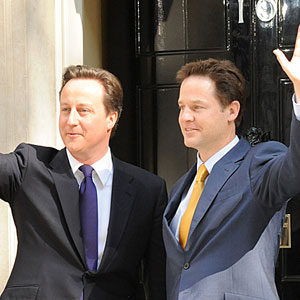
Let's have some stats:
Eton College - 19 Prime Ministers incl. David Cameron
Harrow School - 8 Prime Ministers
Westminster School - 2 Prime Ministers not incl. Nick Clegg
just to name a few.
From 1964 to 1997, all Prime Ministers had been educated at an independent school. This figure rises even more when we look at the Conservative Party. Almost a half of Conservative Party MPs in Parliament attended a Private School and 21 MPs attended Eton College.
I'm making Eton College look like some Prime Minister and MP making factory but may MPs and David Cameron himself are quite coy about it all. The fact that they went to a £28,500 per year school isn't the most election winning point, is it?
However the question is, does this have any real impact on UK Politics and why do Public and Private schools produce so many politicians?
To answer this question, we must look at the type of pupils that would attend a public school. To get into a public school you would have to be reasonably clever and we would also assume that they are from a wealthy family who probably encouraged their child to put education as a priority. This with high quality education and subsequent degree level education does make them a clever person.
Politics is a demanding job and requires someone with relatively high level of education. Unfortunately many poorer families do not see education as a priority and this perhaps explains why such a high proportion of politicians are from a private school.
Does this have any real impact on UK politics? To some extent, yes, they do. On one side of the argument, we could say that being a highly educated person from a respected background, one is quite qualified to do the job but on the other does this mean poorer, less educated people are under represented in parliament?
What do you think?










Choosing the right British boarding school obviously makes a difference to how a pupil turns out. The top private schools are worth going to if you can afford the fees. They aim their pupils high.
ReplyDeleteOf the first 14 PM's of the 20th century, 10 went to public school (and 5 of them went to Eton).
Not to say that people from state schools can't achieve the postition of PM though - look at David Lloyd George.
Generally speaking in the UK we pay for what we get and sadly the education system often fails poorer families. In the past a grammar school education would beckon for those in state schools deemed clever enough from 11 or 13 plus exams. The grammar education was closer to a 'real' education like public/private schools and offered poorer families better prospects after school.
ReplyDeleteThis worked well, but was deemed to be an unfair advantage and grammar schools were closed down.
In short basic education as afforded to normal families generally falls well short of public school education.